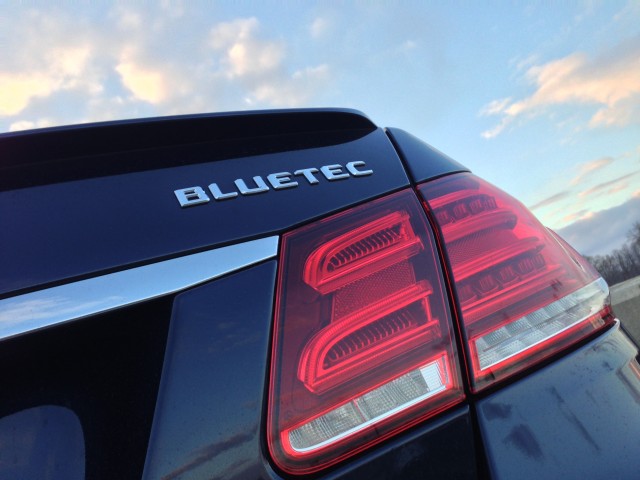
2014 Mercedes-Benz E250 BlueTec 4Matic
New documents revealed in a German investigation into diesel emissions cheating show that German automakers, including Volkswagen, BMW, and Mercedes-Benz may have colluded to limit the amount of emissions-cleaning AdBlue diesel exhaust fluid the cars used.
The news was reported by the German newspaper Handelsblatt on Tuesday.
The AdBlue urea solution was contained in tanks too small to last the specified distance between refills, internal company documents reveal. In one 2008 email, an Audi engineer wrote that if customers had to refill their tanks every two months, "it would be a disaster for the entire clean diesel strategy in North America…. This assessment is shared also by VW, BMW, and Daimler." (Daimler is the parent company that produces Mercedes-Benz cars.)
DON'T MISS: Volkswagen fires six managers over diesel emissions cheating
The documents were revealed as part of a criminal investigation in Germany of 39 Volkswagen executives for fraud and deceptive advertising.
An Audi presentation uncovered last year referred to a "commitment of the German automotive manufacturers at board level" to using smaller urea tanks and making them last longer.
All three automakers, BMW, and Mercedes-Benz, along with Volkswagen and its luxury division Audi, submitted documents to German regulators showing that the cars would use 0.26 gallons (1 liter), of urea fluid in 1,000 miles of driving, when it fact it would take 0.78 gallons (3 liters) of the fluid to neutralize emissions for that distance.
CHECK OUT: Mercedes-Benz gets its own diesel emission cheating questions now
The documents show email exchanges among the companies discussing a German investigation into "defeat device software" used to minimize urea consumption and flout emissions laws when the cars were driven on the road, and still meet the requirements when the cars were tested.
All three automakers, plus Fiat Chrysler Automobiles, used emissions hardware and software from German supplier Bosch, which has also been sued for its role in the scandal.
READ THIS: Those fuel-efficient diesels? Actually worse on lifetime CO2, study says
The emissions cheating led to a historic settlement with Volkswagen that has cost the automaker an estimated $30 billion, including buying back most of the diesel models it sold in the U.S.
Bosch has settled lawsuits against it in relation to the scandal.
Class-action lawsuits are outstanding against BMW, Mercedes-Benz, and FCA.